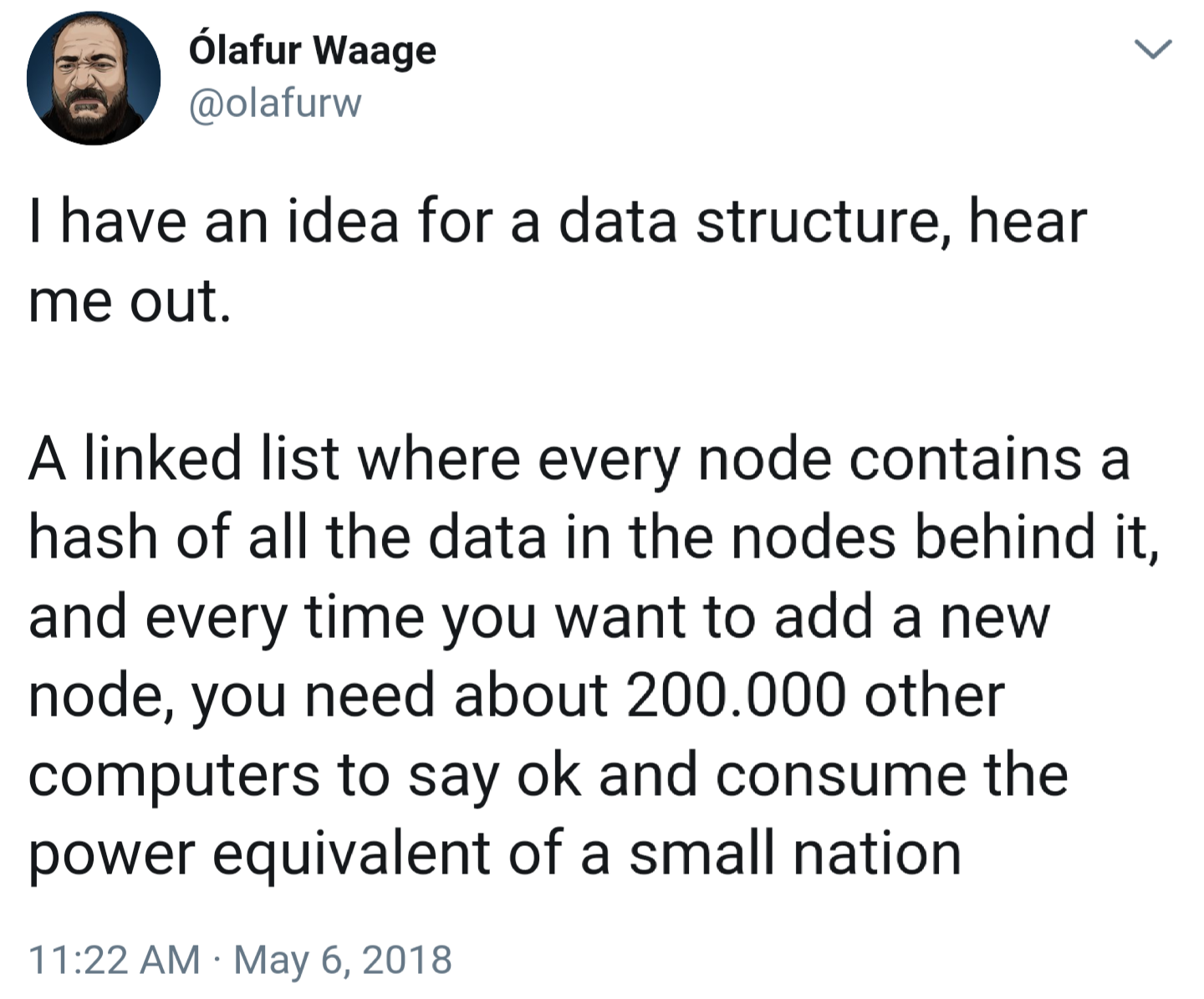this post was submitted on 02 Feb 2024
1871 points (96.5% liked)
Memes
45673 readers
1120 users here now
Rules:
- Be civil and nice.
- Try not to excessively repost, as a rule of thumb, wait at least 2 months to do it if you have to.
founded 5 years ago
MODERATORS
you are viewing a single comment's thread
view the rest of the comments
view the rest of the comments

I hear that now since 12 Years. Its not going to happen.
The perfect use case is tickets to live events. One entity creates one NFT for each seat or spot available and can initially sell them. The owner of that NFT (ticket) can then do whatever they want with it without the need for a third party (Ticketmaster) to scalp the shit out of any subsequent transactions.
Proof of ownership of a single ticket at the time of the event is the end goal, which is what NFTs do.
Why this hasn't been done is pretty baffling to me.
What's better, is if artists want to provide a subset of tickets that are not resellable they can. Those tickets will only be accepted if a single transaction has taken place.
How is that supposed to prevent scalping, exactly?
And that's better than physical tickets, because...?
That's also already a solved problem: write a name on a ticket and validate that name with an ID.
Just responding to the “scalping” quote. It absolutely wouldn’t stop scalping, what I HOPE op was trying to say was that it could be used to prevent Ticketmaster, or any entity like it, from charging fees on every exchange of said ticket.
Would it? Or would Ticketmaster just buy all the NFTs and then have even less regulation on their scalping?
I forgot to say IN THEORY again. My bad.